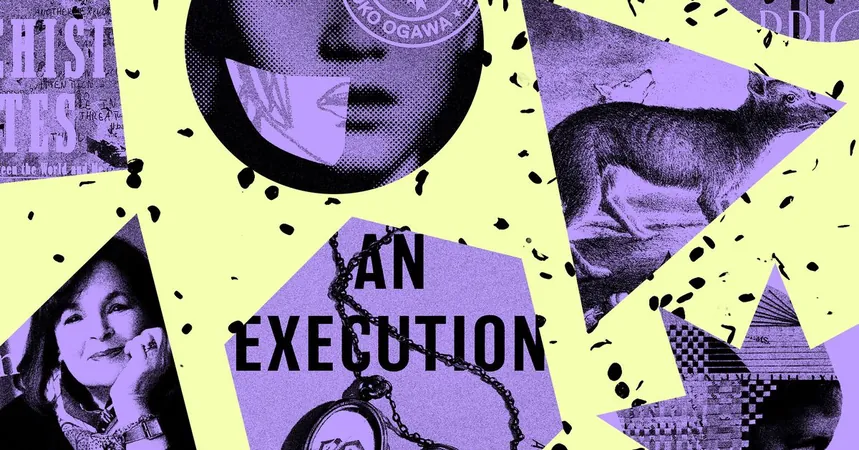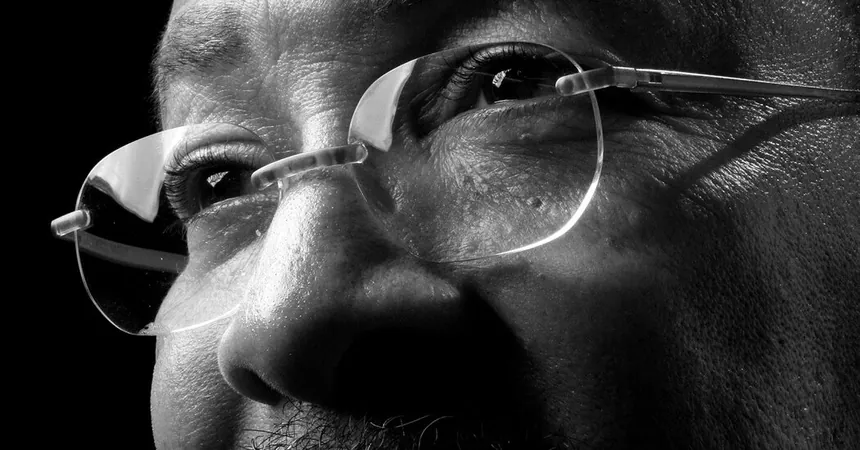
Outrage in Italy as Citizenship is Fast-Tracked for Argentine President Javier Milei
2024-12-14
Author: Kai
Introduction
Italy is facing a significant backlash after granting citizenship to Javier Milei, the ultra-libertarian president of Argentina, during his recent visit to Rome. The decision has ignited controversy, particularly among opposition politicians who argue for a more equitable citizenship process for migrant children born in Italy.
Details of the Citizenship Grant
On Friday, Italian Prime Minister Giorgia Meloni welcomed Milei at Palazzo Chigi, the official residence of the Prime Minister. It was during this meeting that the news broke of Milei's successful citizenship application, facilitated by his Italian ancestry. His grandparents emigrated from Italy to Argentina in the early 20th century, and Milei has publicly identified with his Italian roots, even stating that he is "75% Italian."
Criticism and Backlash
However, the decision has drawn ire from various quarters. Critics, including opposition lawmaker Riccardo Magi from the +Europa party, have condemned the move as an "insult" to countless young Italians and migrants who must navigate a lengthy citizenship process. Currently, foreign nationals must reside in Italy for 10 years before applying for citizenship, and children born to non-Italian parents do not have the right to apply until they reach 18 years old.
Fast-Track Initiative
Milei's citizenship application was reportedly processed through an exclusive fast-track initiative launched by the Italian government in recent weeks. In a move that highlights the apparent favoritism in this situation, Milei's sister Karina, the General Secretary of the Argentine Presidency, also received Italian citizenship.
Political Implications
The controversy has put Meloni’s coalition under scrutiny, with opposition parties and pro-migrant organizations advocating to reduce the citizenship requirement to five years. Meloni, who leads the far-right Brothers of Italy party, opposes any relaxation of these regulations.
Conclusion
In a passionate plea for fairness, Magi expressed that millions of young people born in Italy, who contribute to the country through work and taxes, face ongoing challenges in obtaining citizenship—unlike Milei, whose citizenship was granted without the same effort. The situation raises questions about the consistency of immigration and citizenship policies in Italy and whether political connections can unduly influence these processes. As protests ensue and debates continue, this case could significantly impact public opinion on the government's immigration policies and could become a pivotal issue in upcoming political discussions.




 Brasil (PT)
Brasil (PT)
 Canada (EN)
Canada (EN)
 Chile (ES)
Chile (ES)
 España (ES)
España (ES)
 France (FR)
France (FR)
 Hong Kong (EN)
Hong Kong (EN)
 Italia (IT)
Italia (IT)
 日本 (JA)
日本 (JA)
 Magyarország (HU)
Magyarország (HU)
 Norge (NO)
Norge (NO)
 Polska (PL)
Polska (PL)
 Schweiz (DE)
Schweiz (DE)
 Singapore (EN)
Singapore (EN)
 Sverige (SV)
Sverige (SV)
 Suomi (FI)
Suomi (FI)
 Türkiye (TR)
Türkiye (TR)